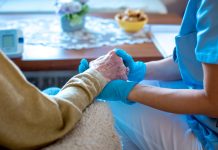OAG highlights the efforts made by the Welsh Government to improve cancer care and research throughout the country
Due to an ageing population, the demand for cancer care is ever increasing. In Wales, cancer is one of the two biggest causes of premature death, which is why tackling the disease is a top priority for the Welsh government. In 2014 1 they reported that the nation was spending more on cancer care, than ever before.
Figures revealed by the government highlighted that the total spend on cancer care had increased from £356.8m in 2011-12, to £360.9m for the year 2012-13. At the time, Minister for Health and Social Services Mark Drakeford said that the investment was made in clinically effective cancer treatments, which have a proven evidence base.
Speaking about the figures back in 2014 2, Drakeford said: “I’m determined to ensure every patient in Wales gets the best quality care they need and deserve. These figures show we are now spending more than ever on cancer care in Wales.
“This demonstrates our absolute determination to invest in health services that deliver the very best outcomes for the people of Wales. This means investing in medicines which are proven to work. I have consistently rejected calls to establish a cancer drug fund in Wales. To do so would prioritise cancer over other life-threatening conditions and divert money away from medicines which are proven to work.”
A new report ‘Together for Health – Cancer Delivery Plan (add link) reveals that more people in Wales are surviving cancer, even though the number of people diagnosed has risen. Between 1995 and 2011 there believed to have been on average, around 16,400 new cases of cancer every year in Wales. By 2012 that had risen to more than 18,000. The report also revealed that among people aged under 75, there was a 25% reduction in mortality rates between those same years. It also stated that since 1995, there has been a 17.5% improvement in the number of people alive one year after diagnosis and a 20.1% improvement in the 5-year survival rate.3
As one of the government’s key aims is to reduce the incidence of cancer throughout the nation, improving services is integral to this. In February last year, Mark Drakeford spoke to Assembly Members 4 about his plans for improvements in cancer care.
“Cancer is about more than ‘waiting times’,” he said. “It is about people and their care. In our recent Cancer Patient Experience Survey, I was pleased to see that so many people rate their care highly.” Published in 2014, the Cancer Patient Experience Survey was run in partnership with Macmillan Cancer Support and asked patients to rate their experience and provide feedback on the care and treatment they have received. Over 7,000 cancer patients were surveyed for the report, and it highlighted areas of care which needed improvement.
“The clear message of the survey is the majority of people receive excellent care and support in a wide range of areas,” said Drakeford.
“The survey did not just concentrate on medication or surgical procedures. It considered the whole journey faced by a person, starting when they are first given a diagnosis of cancer. I am pleased to report that 85% of people said they were always treated with respect and dignity by staff; 87% had confidence and trust in the doctors and nurses caring for them and 94% said they had enough privacy when being treated.
“I was very pleased to learn that Wales has the biggest increase in cancer survival rates in the UK. While our cancer survival improvement has been the best in the UK, we are still to reach the levels achieved in a number of other European countries. We need to continue to make progress here.” 5
As well as cancer care and treatment, Wales is home to one of the UK’s leading centres for cancer research at Cardiff University. The university has recently joined up with a number of Chinese universities to work collaboratively in the field of medical research, particularly cancer research.
Research at the university has played a major collaborative role in a multi-disciplinary, international effort to understand the molecular basis, diagnosis, prevention and treatment of cancer. This has led to long-term survival rates in the UK doubling over the last 40 years.
- Around £5m has been invested into the Cardiff University-Peking University Cancer Institute 6, in order to support pre-clinical translational research. Through the Cardiff Cancer Collaborative, they hope to maximise the benefits to patients with 5 key areas of research strength:
- Tumour and environment;
- Drug discovery, development and delivery;
- Cancer immunology;
- Personalised cancer genetics (and other translational research);
- Clinical trials (and other clinical interventions).
The approach taken by the Cardiff Cancer Collaborative brings together all facets of cancer research activity in a United hub of expertise under a single strategy.
Further investments have been made, including £3m for the European Cancer Stem Cell Research Institute. Wales continues to make strides in its aim to tackle cancer and play a central role in cancer research. They may only be a small nation, but they are certainly off to a great start.
1 http://gov.wales/newsroom/healthandsocialcare/2014/140611cancer/?lang=en
2 IBID
3 http://gov.wales/newsroom/healthandsocialcare/2015/150114cancer/?lang=en
4 http://gov.wales/about/cabinet/cabinetstatements/2014/cancerservices/?lang=en
5 IBID
6 http://www.cardiff.ac.uk/research/explore/research-topics/biomedical-and-life-sciences/cancer
OAG










